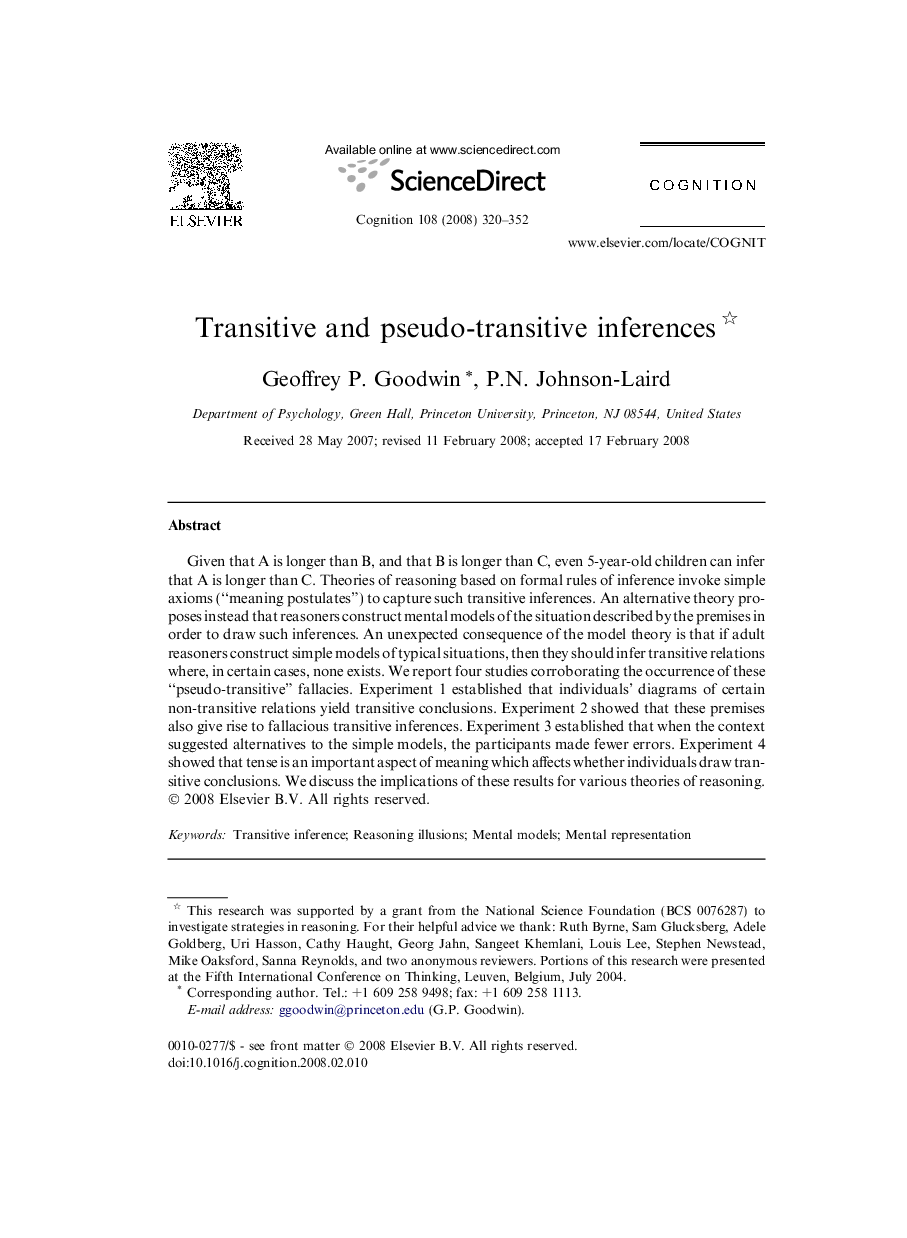| Article ID | Journal | Published Year | Pages | File Type |
|---|---|---|---|---|
| 927080 | Cognition | 2008 | 33 Pages |
Given that A is longer than B, and that B is longer than C, even 5-year-old children can infer that A is longer than C. Theories of reasoning based on formal rules of inference invoke simple axioms (“meaning postulates”) to capture such transitive inferences. An alternative theory proposes instead that reasoners construct mental models of the situation described by the premises in order to draw such inferences. An unexpected consequence of the model theory is that if adult reasoners construct simple models of typical situations, then they should infer transitive relations where, in certain cases, none exists. We report four studies corroborating the occurrence of these “pseudo-transitive” fallacies. Experiment 1 established that individuals’ diagrams of certain non-transitive relations yield transitive conclusions. Experiment 2 showed that these premises also give rise to fallacious transitive inferences. Experiment 3 established that when the context suggested alternatives to the simple models, the participants made fewer errors. Experiment 4 showed that tense is an important aspect of meaning which affects whether individuals draw transitive conclusions. We discuss the implications of these results for various theories of reasoning.
